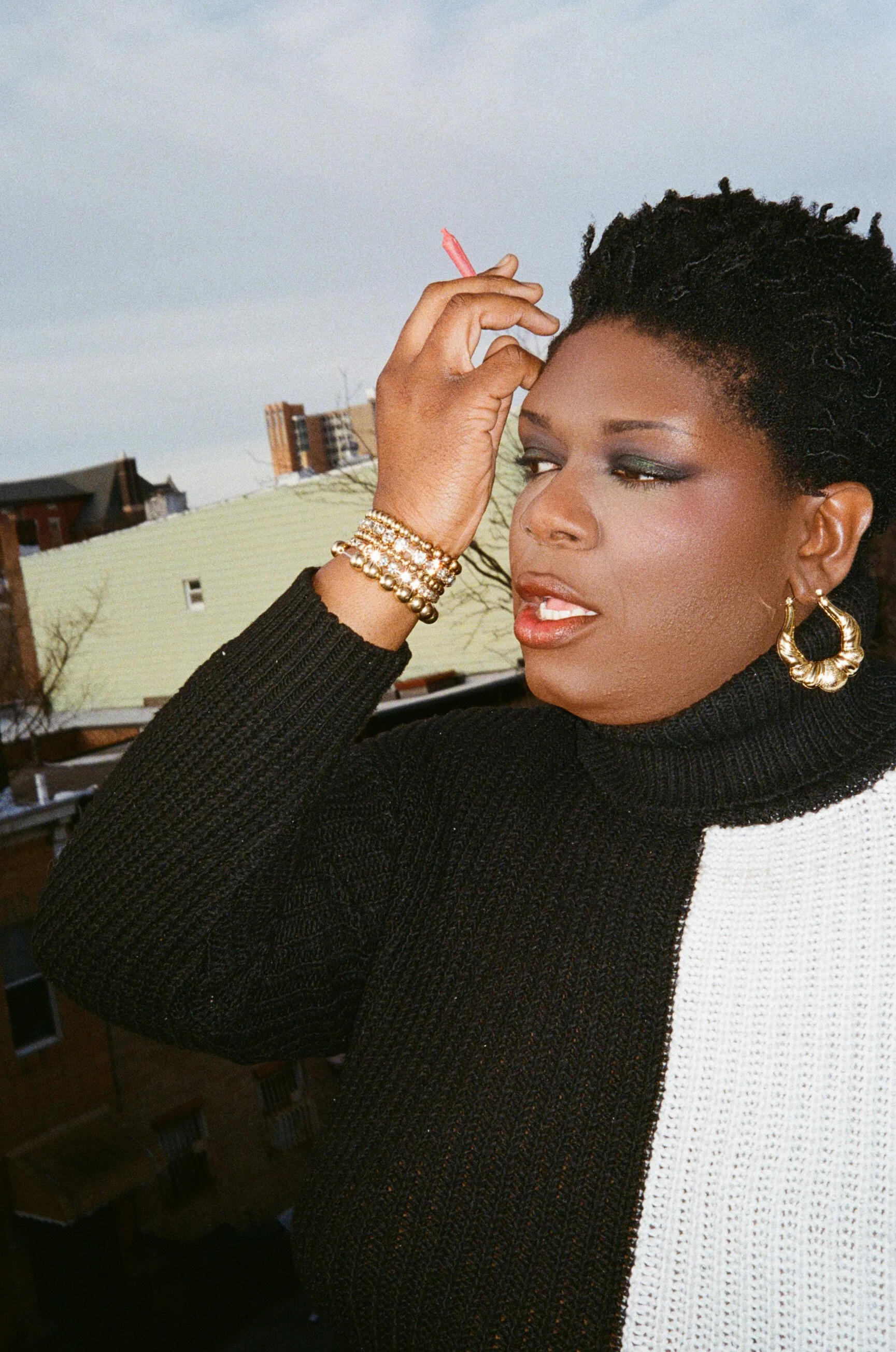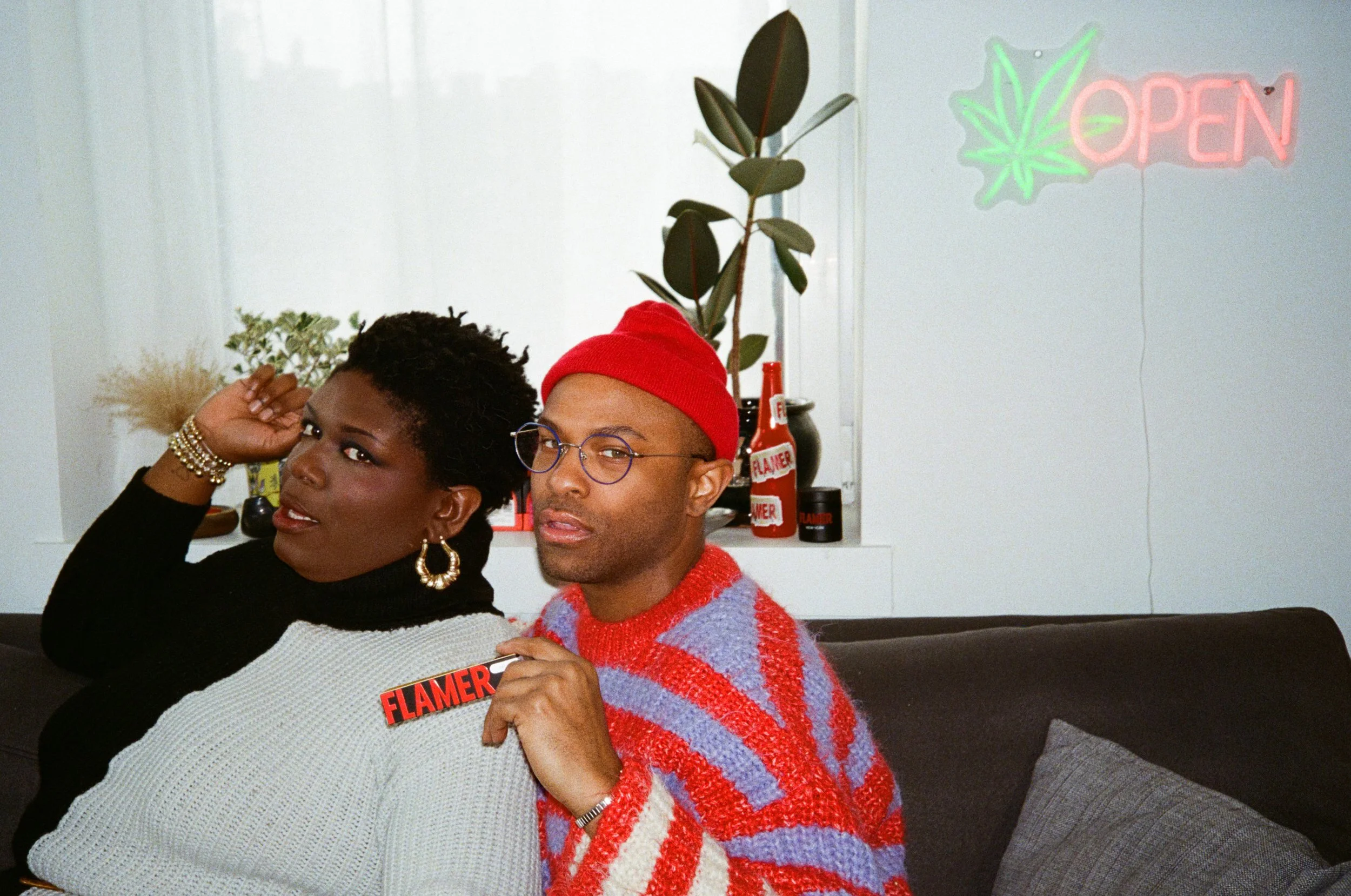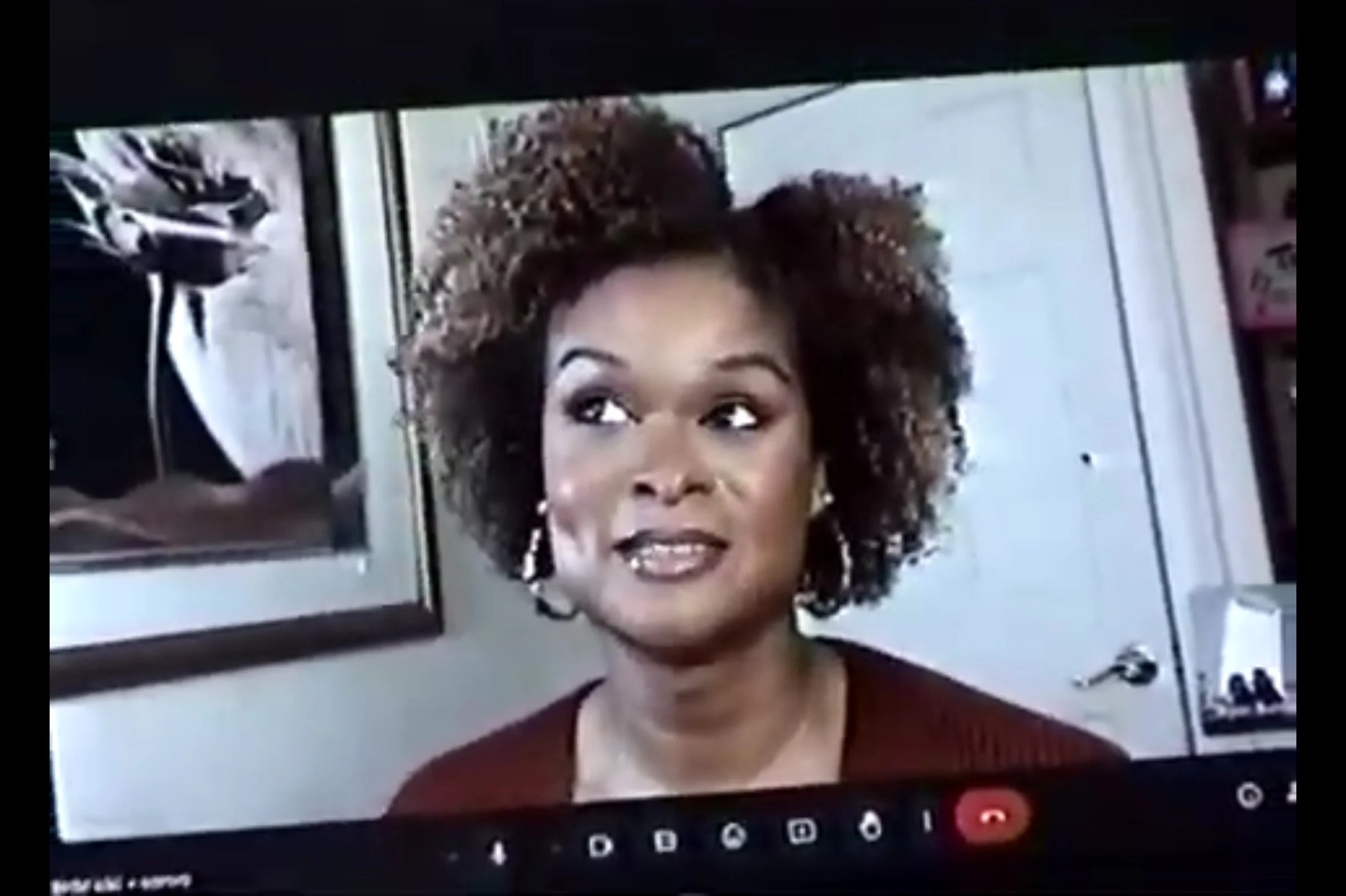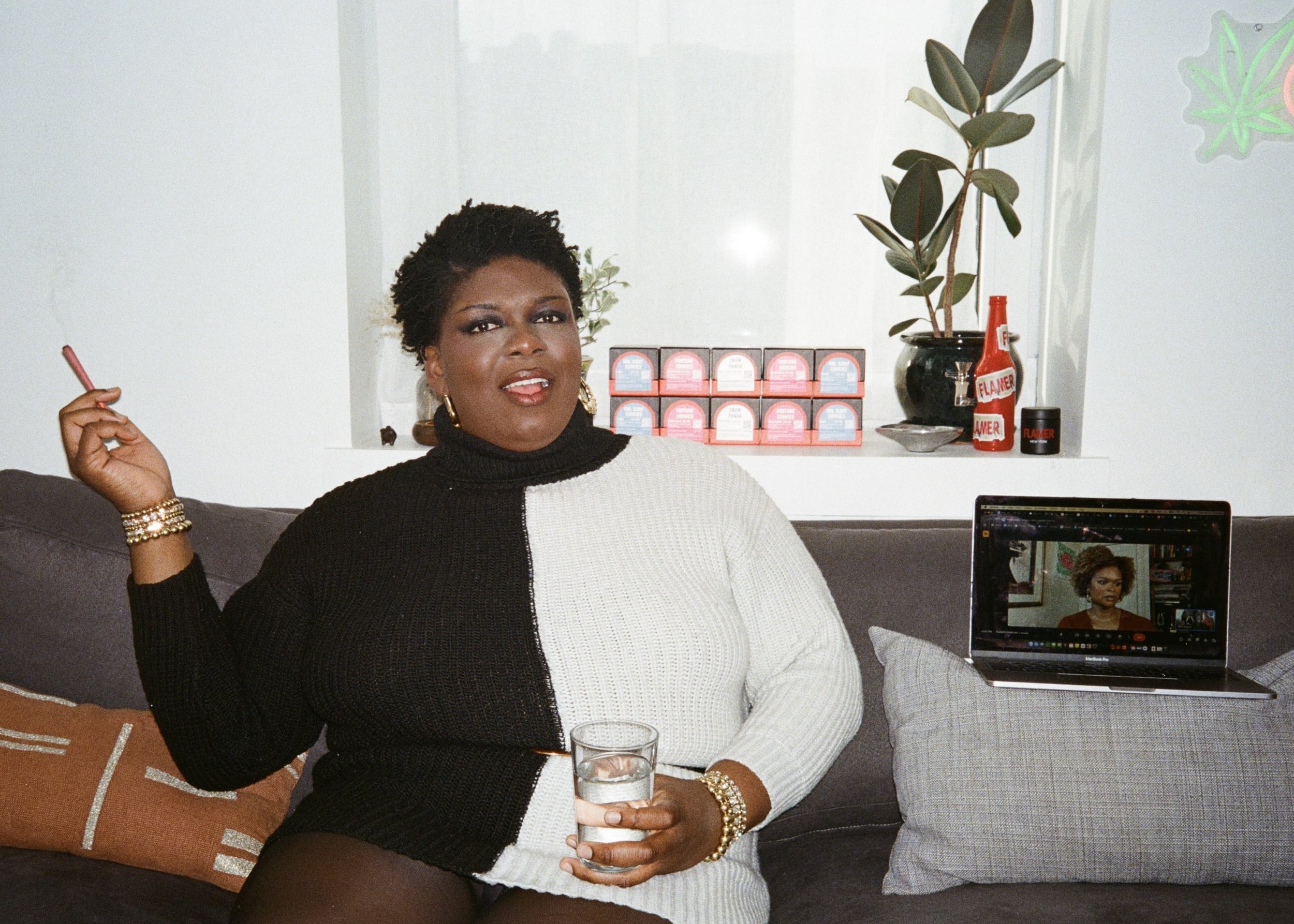BLACK TRANS RESILIENCE: Raquel Willis + Cherry Jaymes
Raquel Willis + Cherry Jaymes demand we bring back white guilt
amidst the final days of Black History Month, Cherry Jaymes and Raquel Willis joined Ryon Burrell for a (partly virtual) kiki at FLAMER HQ. they delved deep into the complexities of identity, resilience, and creative expression.
photography on 35mm film by Matías Alvial
Raquel Willis is the co-founder Gender Liberation Movement (GLM) and author behind The Risk it Takes to Bloom. named as one of TIME’s women of the year her work continues to advocate and aid for queer + trans communities across the world.
the show stopping Cherry Jaymes of course is no newcomer to the spotlight as a model and NYC-based drag artist. last year, she closed out the summer in angel wings at the hottest party of 2024, Doll Invasion—which is slated to be August 16th this year ;).
after a quick film shoot with Cherry and a cheeky PNC joink sesh, the group makes their way to the cozy couch in the sun drenched room. two insanely talented and influential women begin bestowing their wisdom as Ryon Burrell (HAZYL) guides the convo. they share how they navigate the intersections of blackness, queerness, and transness in a world that often seeks to erase or diminish their experiences.
photography on 35mm film by Matías Alvial
photography on 35mm film by Matías Alvial
finding community + role models
for many Black LGBTQIA+ individuals, representation remains scarce. both Cherry and Raquel reflect on the difficulty of finding visible Black queer and trans role models early in life, making their journeys of self-discovery more challenging.
"i think as long as you can build hope for yourself through little pieces of your day, that's how you just keep going," Cherry shares. "serving yourself now is what serves you in the future."
the idea of "possibility models," a term coined by writer and activist Janet Mock, resonated deeply with her. rather than relying on traditional role models, she emphasizes the importance of forging one’s own path and embracing self-love despite systemic barriers and personal hardships.
the role of creativity and escapism
Cherry and Raquel highlight the significance of creative outlets in processing their identities and experiences. whether through performance, writing, or even video games, these forms of expression provide a necessary refuge.
Ryon and Cherry speak to the power of immersive experiences like gaming: "video gamifying" life can be a way to manage mental health and maintain hope. the ability to step into a world where one's identity isn't a constant battle can serve as a form of self-care and empowerment.
connecting with ancestry
"i think being Liberian shapes my work," Cherry says. "i am a Loma, but i don't feel so caught up in trying to do one specific practice from the Loma side. i think that freedom is in knowing that anything i do inherently is Liberian."
Raquel shares how growing up in the south, specifically Georgia she feels a deep connection to her ancestors and community whilst facing aspects of a deeply conservative space. "when all of these discussions of who is really from the United States come up—particularly from white folx—it is funny to me because my people have been here for generations and played a major role in building the infrastructure of this country."
demanding more from White allies
the need for white allies to move beyond passive support is a key component to true allyship. Willis challenges the idea of comfort, pushing for white people to engage deeply with their privilege of whiteness and the systemic oppression they either benefit from or ignore entirely.
"i think white folx need to be uncomfortable and should feel uncomfortable in a white supremacist society," Raquel says. "you should be thinking about your whiteness all the time, just like we have to think about our blackness all the time because it impacts how you navigate the world."
“i think it’s time to bring back white guilt,”
"if you find yourself feeling especially comfortable, consider why,” Raquel suggests. “because it probably means that you aren't thinking deeply enough about who isn't in the room or who isn't empowered in the room."
historical context + collective memory
history plays a crucial role in shaping black queer and trans identities, Jaymes and Willis express the importance of understanding the past to navigate the present. they discuss the historical erasure of Black LGBTQIA+ figures and the impact of systemic oppression, from the American colonization society’s forced migrations to Jim Crow laws.
Cherry reflects on how historical narratives often overlook the contributions of queer people of color, citing her performance at Doll Invasion, where she honored the late Cecilia Gentili whose legacy lives on through her peers and an active NY bill named after her (“Cecillia’s Act” Senate Bill S2513) to decriminalize sex work. performances like this serve as acts of resistance and “radical defiance” (as Willis says) in reclaiming space and narrative for those historically silenced.
BLACK HISTORY MONTH IS EVERY MONTH
while the conversation addressed heavy realities, both Raquel and Cherry maintain a sense of hope. they emphasize the need for continued community-building and self-empowerment, encouraging Black LGBTQIA+ individuals to seek out spaces where they feel seen and valued and for White folx, queer or not to continue to celebrate and lift up the Black community, not just during this month [Editor’s Note: the shortest month of the year i might add *eye roll*] but every month.




